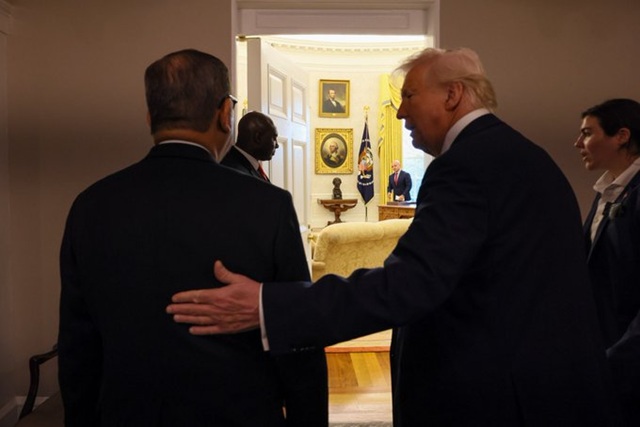A major diplomatic rift has emerged between the United States and Japan, as Tokyo abruptly cancelled high-level security talks in response to a fresh U.S. demand for a sharp increase in Japanese defence spending. The decision underscores rising tension within the U.S.–Japan alliance, widely considered the cornerstone of American strategy in Asia.
According to The Financial Times, Japan withdrew from the planned “2+2” security meeting, which was scheduled to take place in Washington on July 1. The meeting would have brought together U.S. Secretary of State Marco Rubio and Defence Secretary Pete Hegseth with their Japanese counterparts, Foreign Minister Takeshi Iwaya and Defence Minister Gen Nakatani.
Sources familiar with the matter, including two Japanese officials, confirmed that the talks were shelved after the Trump administration suddenly raised its demand for Japan’s defence budget from 3% to 3.5% of GDP — a move that angered policymakers in Tokyo. The push came from Elbridge Colby, the Pentagon’s third-ranking official and a leading voice behind the administration’s assertive stance on allied military contributions.
The timing of the demand, just weeks before Japan’s July 20 Upper House elections, was seen as particularly provocative. A senior Japanese official said the cancellation was partly driven by political sensitivities, with Prime Minister Shigeru Ishiba’s ruling Liberal Democratic Party expected to lose seats.
Christopher Johnstone, a former senior U.S. government official and Japan expert, said Tokyo regards the annual 2+2 talks as a “very high priority” and a symbolic reaffirmation of the alliance’s strength. The cancellation “signals significant unease in Tokyo about the state of the bilateral relationship and its outlook,” he told The Financial Times. “Tokyo appears to have concluded that the political risk of a meeting before the election was higher than the potential gain — a pretty extraordinary assessment, if true.”
The breakdown in talks comes amid broader U.S. efforts to pressure both European and Asian allies to increase military budgets. Speaking last month at the IISS Shangri-La Dialogue in Singapore, Defence Secretary Hegseth urged Indo-Pacific partners to emulate Europe’s pledges to spend more on defence, citing threats from China and North Korea.
Colby, a vocal proponent of this hardline approach, drew criticism earlier this year when his calls for higher Japanese defence spending prompted a rare public rebuke from Prime Minister Ishiba, who insisted that Tokyo would set its own budget priorities.
Zack Cooper, an Asia security specialist at the American Enterprise Institute, warned that the Trump administration’s demands could prove counterproductive. “The inconsistent and unrealistic message on defence spending in Asia risks backfiring and undermining the officials and experts most supportive of the U.S. in key foreign capitals,” he said.
Adding to tensions, Colby has reportedly launched a review of AUKUS, the strategic pact between the U.S., UK, and Australia aimed at helping Canberra acquire nuclear-powered submarines — a move first reported by the Financial Times. He has also advised European nations to scale back their involvement in Asia and focus more narrowly on the Euro-Atlantic region, marking a significant departure from the Biden administration’s more integrated approach to global security.
Further friction may emerge next week at the NATO summit in The Hague, where the Trump administration is not expected to push for a mention of the Indo-Pacific in the alliance’s communiqué — a sharp break from past U.S. policy designed to send a unified deterrent message to China.
The cancelled U.S.–Japan meeting may prove more than a scheduling hiccup. It could signal a turning point in how Tokyo and Washington manage an alliance strained by competing visions of burden-sharing and regional strategy.


AloJapan.com